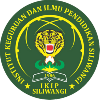TEACHERS' PERCEPTIONS ON THE USE OF APPRECIATION AS A COMMUNICATION STRATEGY IN GIVING FEEDBACK
Abstract
This study was to find out the teacher's perception of the use of appreciation as feedback in learning, pattern of appreciation and the student's response. The research method used qualitative with questionnaires instruments, 79 teachers and 30 students respondents. The results and findings are the 98.7% teacher knew about appreciation, 100 % importance of giving appreciation, 98.7% the necessity giving appreciation, 100% giving appreciation can increase student motivation, the teacher 96.2% gave appreciation to students who active or doing exercises, 94.9% gives appreciation to students who do exercises even the results are inaccurate, 98.7% giving appreciation can encourage students to achieve, 96.2% giving appreciation related to student learning achievements, 67.1% giving appreciation too often can cause trust inflation in teachers, 79.7% giving appreciation related to teacher personality, 91% student at all levels of education require teachers’ appreciation, 58.2% teachers believe that all teachers always give appreciation. Forms of appreciation carried out by the teacher verbal 15.2%, Written 2.5%, Thumbs Up 0%, verbal / thumbs up 38%, verbal and applause 27.8%, verbal and gift something 16.5%, gifts something 0%. Student responses to appreciation were 60% for verbal and thumbs-up gestures, 35% verbal and written. 5% apreciation with gift.
References
Agha, A. F., Khan Alwi, S. K., & Shaiq, M. (2020). Teachers’ Perception of the Effectiveness of Teachers Appraisal Systems in Private Schools of Pakistan. New Horizons (1992-4399), 14(1), 33–50. http://10.2.36.54/NH.14.1(20).03%0Ahttp://simsrad.net.ocs.mq.edu.au/login?url=https://search.ebscohost.com/login.aspx?direct=true&db=aph&AN=145376585&site=ehost-live
Barnes, J., & Barnes, J. W. (2020). Mississippi Teachers ’ Perception of Performance Evaluation Feedback and Its Influence on Teaching Practices and Student Outcomes by.
Creswell, J. W. (2014). Research Design (Qualitative, Quantitative, and Mixed Methods Approaches. SAGE Publications, Inc.
Elliott, K. (2015). Teacher performance appraisal: More about performance or development? Australian Journal of Teacher Education, 40(9), 102–116. https://doi.org/10.14221/ajte.2015v40n9.6
Fang, H., & Cao, Q. (2016). Appreciation Makes Students Grow Healthy and Self-confident. Emim, 1712–1716. https://doi.org/10.2991/emim-16.2016.348
Hunt, P., Leijen, Ä., & van der Schaaf, M. (2021). Automated feedback is nice and human presence makes it better: Teachers’ perceptions of feedback by means of an e-portfolio enhanced with learning analytics. Education Sciences, 11(6). https://doi.org/10.3390/educsci11060278
J.R Martin, & White, P. R. R. (2005). The Language of Evaluation : Apraisal in English. Canadian Journal for Studies in Discourse and Writing/Rédactologie, 6(2), 01–99. http://www.thepdfportal.com/languageofevaluationbook_113387.pdf
Juntika, Y. dan. (2009). Landasan Bimbingan dan Konseling (p. 135). PT Remaja Rosdakarya.
Kaya, G., & Ahi, B. (2022). The Epistemic Role of Children’s Questions and Teacher’s Responses in Preschool Classroom Discourse. Journal of Education. https://doi.org/10.1177/00220574221088486
Konold, K. E., Miller, S. P., & Konold, K. B. (2004). Using Teacher Feedback to Enhance Student Learning. TEACHING Exceptional Children, 36(6), 64–69. https://doi.org/10.1177/004005990403600608
Spruyt, B., Van Droogenbroeck, F., Van Den Borre, L., Emery, L., Keppens, G., & Siongers, J. (2021). Teachers’ perceived societal appreciation: PISA outcomes predict whether teachers feel valued in society. International Journal of Educational Research, 109(March), 101833. https://doi.org/10.1016/j.ijer.2021.101833
Van der Lans, R. M., van de Grift, W. J. C. M., & van Veen, K. (2018). Developing an Instrument for Teacher Feedback: Using the Rasch Model to Explore Teachers’ Development of Effective Teaching Strategies and Behaviors. In Journal of Experimental Education (Vol. 86, Issue 2, pp. 247–264). https://doi.org/10.1080/00220973.2016.1268086
Downloads
Published
Issue
Section
License
Copyright (c) 2023 PROJECT (Professional Journal of English Education)

This work is licensed under a Creative Commons Attribution-ShareAlike 4.0 International License.











